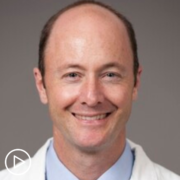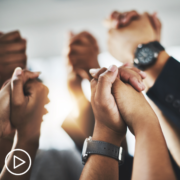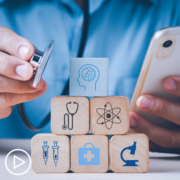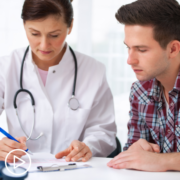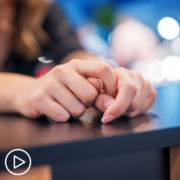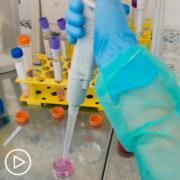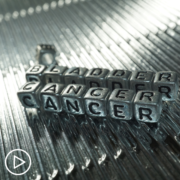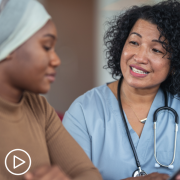The Importance of Patient Self-Advocacy in Bladder Cancer Treatment from Patient Empowerment Network on Vimeo.
Bladder cancer expert Dr. Shilpa Gupta encourages patients to advocate for themselves and to become active members in their treatment and care decisions.
Dr. Shilpa Gupta is the Director of the Genitourinary Medical Oncology at Taussig Cancer Institute and Co-Leader of the Genitourinary Oncology Program at Cleveland Clinic. Dr. Gupta’s research interests are novel drug development and understanding biomarkers of response and resistance to therapies in bladder cancer. Learn more about Dr. Gupta, here.
See More From The Pro-Active Bladder Cancer Patient Toolkit
Related Programs:
Transcript:
Katherine:
Right. Let’s talk about patient self-advocacy for a moment. Patients can sometimes feel like they’re bothering their healthcare team with their comments and their questions. Why is it important for patients to speak up when it comes to symptoms and side effects?
Dr. Gupta:
Yeah, I think the patients have to be their own advocates, right? Unless they do tell their team about what they are going through, many times action will not be taken unless they’re actually seeing their team in real-time.
And sometimes that visit may not be happening for months so it’s very important to never feel that you’re bothering the teams. And nowadays, with all these electronic ways where patients can communicate with their teams, I think patients are very aware that they can send a MyChart message, for example, and someone will get back to them within a day. So, I think that is really important and the way they can communicate with their teams has also evolved.
Katherine:
How do you think patients can feel confident in speaking up and becoming a partner in their own care?
Dr. Gupta:
I think they have to tell their doctors during their visit that they would like to – whatever their expectations are and what they would like their teams to do to fulfill those expectations.
I think that’s the best way I can say this. That they should always speak up no matter what and if they feel that their concerns about treatment are not being heard, then they should let their treatment teams know and ask what alternative treatments there may be. Or, if their life goals have changed, sometimes patients want to get aggressive treatment and sometimes they just don’t want to go through it anymore. They should let their teams know so, adequately; the goals of care can be modified.
Katherine:
Right. If a patient isn’t feeling confident with their treatment plan or their care, should they consider a second opinion or consulting a specialist?
Dr. Gupta:
Absolutely. I think every patient has a right to consult a second opinion or get second opinions, or even more opinions if they want to make the right decision. Many times, patients are told about one treatment option, and then they want to know, “Well, what alternative options do I have?” “What if I really don’t want my bladder out?” “Is there anything else that can be done?” So, they should be seeing a radiation oncologist in that case.
I think the way we can really make a difference and offer multidisciplinary care is to have the patient see a surgeon, a radiation oncologist, and a medical oncologist. That’s true multidisciplinary care for anybody with localized disease. For metastatic disease, we have a lot of options and usually medical oncologists are the ones who manage it.
Patients can always get second opinions if they feel they want to do something less or more aggressive.
Katherine:
What advice to have for patients who may be nervous about offending their current doctor by getting a second opinion?
Dr. Gupta:
That’s a great question, Katherine, and I know a lot of patients feel that their doctors may feel offended, but in my experience when – if my patients are not local or they – I actually encourage them to go get second opinions and even make referrals to places which may have trials if we don’t have that. It’s always good to have the patients be able to decide and I don’t think nowadays doctors take offense if patients want to get another opinion. In fact, we try to collaborate with our community oncologists.
Where, let’s say patients are currently being treated and they come to us to discuss trials or just to discuss if they’re on the right track. We reassure them and reach out to the community doctors that – yes, we totally agree with what the patient is doing, and these are some other options down the line. And, with the advent of virtual health it’s really become a lot more collaborative because patients are still getting treated locally. When the have their scans and have questions they can schedule a virtual appointment with their doctors in institutions where we have more treatment options like trials.
Katherine:
Dr. Gupta, if patients want to learn more about bladder cancer, or if their families want to learn more what are some credible resources that you would send people to?
Dr. Gupta:
Yeah, I think it’s always good to get credible information than just Googling things which may or may not be true. Bcan.org is a very powerful resource that is a Bladder Cancer Advocacy Network, and as the name implies it’s for the patients, made by bladder cancer advocates.
That’s one of the resources that we highly recommend. Then there’s the resource that you all are working on. So, I think these collectively are the best sources of information which patients should try to stick to.
Katherine:
Right. That’s good advice. To close, what would you like to leave our audience with? What are you hopeful about?
Dr. Gupta:
I think I would like to say that there’s a lot of good information, there’s a lot of advocacy resources. Patients should try to get their information from these verified sources and bring it to their care teams. And never hesitate to reach out for whatever they need during their diagnosis and treatment phase. Always ask questions. Ask about clinical trials. Ask about alternative options. That’s what I would leave the message to be.
Katherine:
Thank you so much for joining us today, Dr. Gupta. We really appreciate it.
Dr. Gupta:
Thank you, Katherine.

